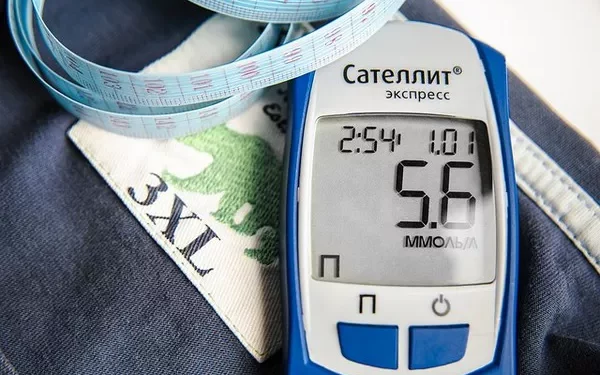Managing blood sugar levels is crucial for individuals with diabetes to prevent complications and maintain overall health. This article explores the optimal blood sugar ranges for diabetes management, factors influencing blood sugar levels, methods of monitoring, and strategies for achieving target ranges.
Understanding Blood Sugar Levels
Normal Blood Sugar Levels
Normal blood sugar levels vary throughout the day, typically ranging between 70 to 140 milligrams per deciliter (mg/dL) or 3.9 to 7.8 millimoles per liter (mmol/L) for people without diabetes. These levels can fluctuate based on factors such as diet, physical activity, stress, and medications.
Impact of Diabetes on Blood Sugar
In diabetes, the body has difficulty regulating blood sugar levels due to insufficient insulin production (Type 1 diabetes) or insulin resistance (Type 2 diabetes). This can lead to elevated blood sugar levels (hyperglycemia) or low blood sugar levels (hypoglycemia), both of which can have serious health consequences if not managed properly.
Optimal Blood Sugar Ranges for Diabetes Management
Target Blood Sugar Ranges
The target blood sugar ranges for individuals with diabetes are generally as follows:
- Fasting Blood Sugar (Before meals): 80-130 mg/dL (4.4-7.2 mmol/L)
- Postprandial Blood Sugar (1-2 hours after meals): Less than 180 mg/dL (10.0 mmol/L)
These targets may vary based on individual circumstances, such as age, duration of diabetes, presence of other health conditions, and overall treatment goals.
A1C Levels
The A1C test, also known as the hemoglobin A1C test, provides an average of your blood sugar levels over the past 2-3 months. The target A1C level for most people with diabetes is below 7%. This corresponds to an average blood sugar level of approximately 154 mg/dL (8.6 mmol/L).
Individualized Goals
It’s important to work with a healthcare provider to establish personalized blood sugar goals based on factors such as age, health status, lifestyle, and diabetes management regimen. Adjustments may be made over time to achieve optimal control and reduce the risk of complications.
Factors Influencing Blood Sugar Levels
Diet and Nutrition
Carbohydrates, fats, proteins, and fiber in foods can all affect blood sugar levels. Carbohydrates have the most significant impact because they break down into glucose during digestion. Monitoring carbohydrate intake and choosing foods with a lower glycemic index can help manage blood sugar levels effectively.
Physical Activity
Exercise can lower blood sugar levels by increasing insulin sensitivity and facilitating glucose uptake by muscles for energy. Regular physical activity is an essential component of diabetes management and can help maintain stable blood sugar levels.
Medications and Insulin
Insulin and other diabetes medications are prescribed to help regulate blood sugar levels. It’s important to take medications as prescribed and monitor their effects on blood sugar levels. Adjustments may be necessary based on blood sugar readings and individual response.
Stress and Illness
Stress hormones can raise blood sugar levels, so managing stress through relaxation techniques and lifestyle adjustments is important. Illness or infection can also cause blood sugar levels to fluctuate, requiring closer monitoring and potential adjustments to medication.
Methods of Blood Sugar Monitoring
Self-Monitoring of Blood Glucose (SMBG)
SMBG involves using a glucometer to measure blood sugar levels at home. It allows individuals with diabetes to monitor their blood sugar levels throughout the day and make informed decisions about diet, exercise, and medication.
Continuous Glucose Monitoring (CGM)
CGM systems provide real-time data on blood sugar levels throughout the day and night. They consist of a sensor inserted under the skin that measures glucose levels in the interstitial fluid. CGM devices can alert users to high or low blood sugar levels, trends, and patterns.
A1C Testing
The A1C test provides an average of blood sugar levels over the past 2-3 months. It is typically performed every 3-6 months to assess long-term diabetes management and treatment effectiveness.
Blood Sugar Logs and Trends
Keeping a record of blood sugar readings, along with notes on meals, exercise, medications, and other factors, can help identify patterns and trends over time. This information is valuable for healthcare providers in making treatment adjustments and optimizing diabetes management.
Strategies for Achieving Target Blood Sugar Levels
Meal Planning and Carbohydrate Counting
Working with a registered dietitian can help develop a balanced meal plan that considers carbohydrate intake, portion sizes, and timing of meals and snacks. Carbohydrate counting allows for flexibility in food choices while helping to manage blood sugar levels.
Regular Physical Activity
Engaging in regular aerobic exercise, such as brisk walking, swimming, or cycling, can improve insulin sensitivity and lower blood sugar levels. Aim for at least 150 minutes of moderate-intensity exercise per week, or as recommended by your healthcare provider.
Medication Adherence
Taking diabetes medications or insulin as prescribed is essential for achieving and maintaining target blood sugar levels. It’s important to follow your healthcare provider’s instructions regarding dosage, timing, and adjustments based on blood sugar readings.
Monitoring and Adjustments
Regular monitoring of blood sugar levels, along with periodic A1C testing, allows for timely adjustments to treatment plans. This may include changes in medication, diet, exercise routine, or lifestyle habits to optimize diabetes management.
See also: What Are The Types Of Blood Sugar Tests
Conclusion
In conclusion, maintaining optimal blood sugar levels is fundamental to managing diabetes effectively and reducing the risk of complications. The target blood sugar ranges for individuals with diabetes aim to balance glucose control with overall health and quality of life. By understanding the factors that influence blood sugar levels, adopting appropriate monitoring techniques, and implementing personalized strategies for diabetes management, individuals can achieve and maintain target blood sugar levels. Working closely with healthcare providers, including physicians, diabetes educators, and dietitians, ensures comprehensive care and support in achieving long-term health goals. Remember, diabetes management is individualized, and adjustments may be needed over time to meet changing needs and circumstances. Regular communication with your healthcare team is key to successful diabetes management and overall well-being.
Related topics:
What’s the Best Diabetes Home Test Kit


























